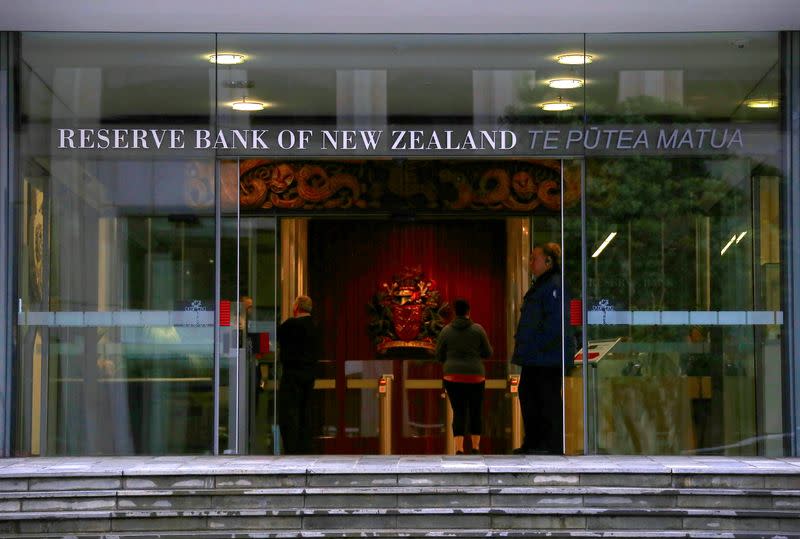New Zealand central bank maintains cash rate, signals potential for future easing

By Lucy Craymer
WELLINGTON (Reuters) -New Zealand's central bank held the cash rate steady at 5.5% on Wednesday, but opened the door to monetary policy becoming less restrictive over time should inflation slow as expected.
The decision was in line with the expectations of all economists polled by Reuters, but the Reserve Bank of New Zealand's (RBNZ) accompanying commentary was more dovish than many had anticipated.
"The Committee agreed that monetary policy will need to remain restrictive. The extent of this restraint will be tempered over time consistent with the expected decline in inflation pressures," the statement said.
At its prior meeting in May, the RBNZ said policy was expected to remain restrictive for a "sustained period" and indicated a rate hike was possible if inflation did not come under control.
The New Zealand dollar fell 0.74% to $0.6085 as markets priced an earlier start to rate cuts, and hit a 16-month low against the Australian dollar. Two-year swap rates dropped 11 basis points to a six-month low of 4.6850%. It now implies 25 basis points of cuts in October.
"The RBNZ sounded rather dovish in its commentary," said Abhijit Surya, Australia and New Zealand economist at Capital Economics in a note. "The Committee's messaging gives us greater confidence that the Bank will commence its easing cycle in November."
The RBNZ said it expected headline inflation to return to within 1% to 3% target range in the second half of this year, down from 4% in the first quarter.
While second-quarter inflation data will not be released until next week, components such as food prices are released monthly and have started to soften. Furthermore, inflation expectations are easing and business confidence is weak.
"Some domestically generated price pressures remain strong. But there are signs inflation persistence will ease in line with the fall in capacity pressures and business pricing intentions," the central bank said.
The rate hikes have sharply slowed the economy, although recent data showed New Zealand moved out of a technical recession in the first quarter of 2024 with growth of 0.2%.
Ahead of the rate decision on Wednesday, 22 of 32 economists polled by Reuters forecast interest rates to fall to 5.25% or lower by year-end, while 10 expected no change. Economists now see a growing risk of earlier cuts or more than one.
"We highlighted last week that risks are tilting towards the first cut coming in November rather than February as we are forecasting; today's Review tilts things a little further that way. But the data will decide," ANZ Chief Economist Sharon Zollner said in a note.
A frontrunner in withdrawing pandemic-era stimulus among its peers, the RBNZ lifted rates by 525 basis points since October 2021 to curb inflation in the most aggressive tightening since the official cash rate was introduced in 1999.
New Zealand joins central banks globally that are starting to look at easing rates. The European Central Bank, Canada, Sweden and Switzerland have all cut interest rates recently and U.S. Federal Reserve policymakers are expected to have a more active debate on interest rate cuts when they next meet in late July.
New Zealand's neighbour Australia, however, is an exception to the easing trend. The Reserve Bank of Australia last month debated whether to raise interest rates given there were upside risks to inflation.
(Reporting by Lucy Craymer; Editing by Jamie Freed)

 Yahoo Finance
Yahoo Finance 